The story of Tiberius and Gaius Gracchus represents a pivotal moment in the history of Rome, where reform clashed with tradition. These two brothers emerged as prominent political figures during the 2nd century BCE, seeking to address the glaring economic disparities in Roman society. Their ambitions set them on a collision course with the entrenched power of the Senate.
In an era marked by rapid military expansion and increasing wealth inequality, the Gracchi brothers championed the redistribution of land to Rome’s impoverished citizens. This article will explore whether their initiatives positioned them as reformers striving for justice or as revolutionaries challenging the status quo.
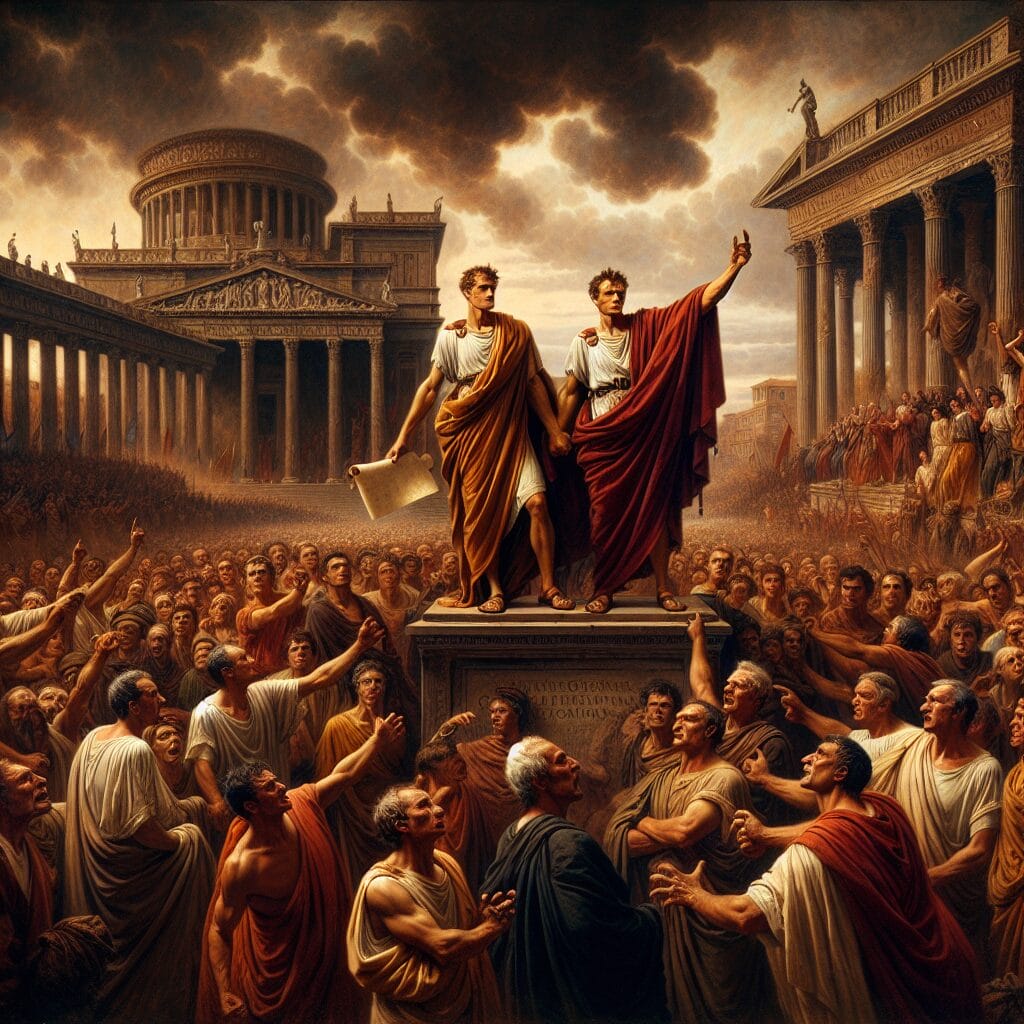
By examining their lives and the socio-political landscape they navigated, we aim to shed light on their impact and enduring legacy in Roman history.
Rome’s Socio-Economic Challenges
During the era of the Gracchi Brothers, economic inequality posed a significant challenge in Rome. The wealth accrued from conquests, such as those in Carthage, Greece, and Spain, became concentrated among the senatorial elite. This left a stark divide between the affluent and the impoverished. Small farmers were particularly affected, as many lost their land to large estates owned by the wealthy, becoming tenant farmers or sharecroppers.

The military expansion further influenced Rome’s socio-economic landscape. It brought vast resources and wealth, enhancing trade and infrastructure. However, it also created a new class of elites and increased reliance on slave labor, which altered social dynamics and fueled unrest among the lower classes.
These factors created a backdrop of political turmoil and social strife. The Senate’s failure to address these issues through reform shifted the focus to internal power struggles, ultimately destabilizing the Roman Republic.
Tiberius Gracchus: The First Reformer
Tiberius Sempronius Gracchus, born into a prominent Roman family between 169 and 164 BCE, was significantly influenced by his aristocratic connections. His education in the Greek enlightenment and exposure to Stoic philosophy equipped him with eloquence and a profound sense of duty. These qualities were evident in his military service under Scipio Africanus and his role as quaestor in Spain, where he displayed integrity and negotiation skills.
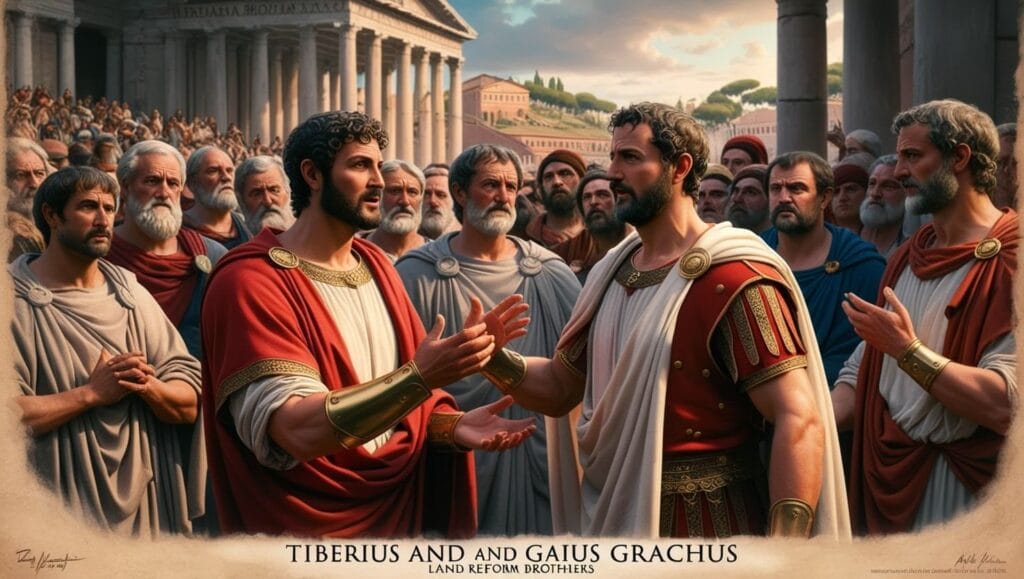
Recognizing the social and economic disparities in Rome, Tiberius proposed comprehensive land reforms:
- Limiting individual holdings of public land to 500 iugera (approximately 300 acres).
- Redistributing excess land to landless citizens and veterans.
- Establishing a commission to oversee and enforce these reforms.
These reforms aimed to rejuvenate the small farmer class, which Tiberius deemed crucial for Rome’s military and social stability. Despite facing staunch opposition from the Senate, his efforts initiated a critical discourse on land ownership and paved the way for future reforms.
Senate’s Resistance to Reform
The Senate’s opposition to the reforms proposed by Tiberius Gracchus was marked by a series of strategic maneuvers aimed at preserving the status quo. The Senate, entrenched in its power, actively blocked his initiatives by refusing to allocate the necessary funds for land reform, thus demonstrating their resistance to any changes that threatened their interests.
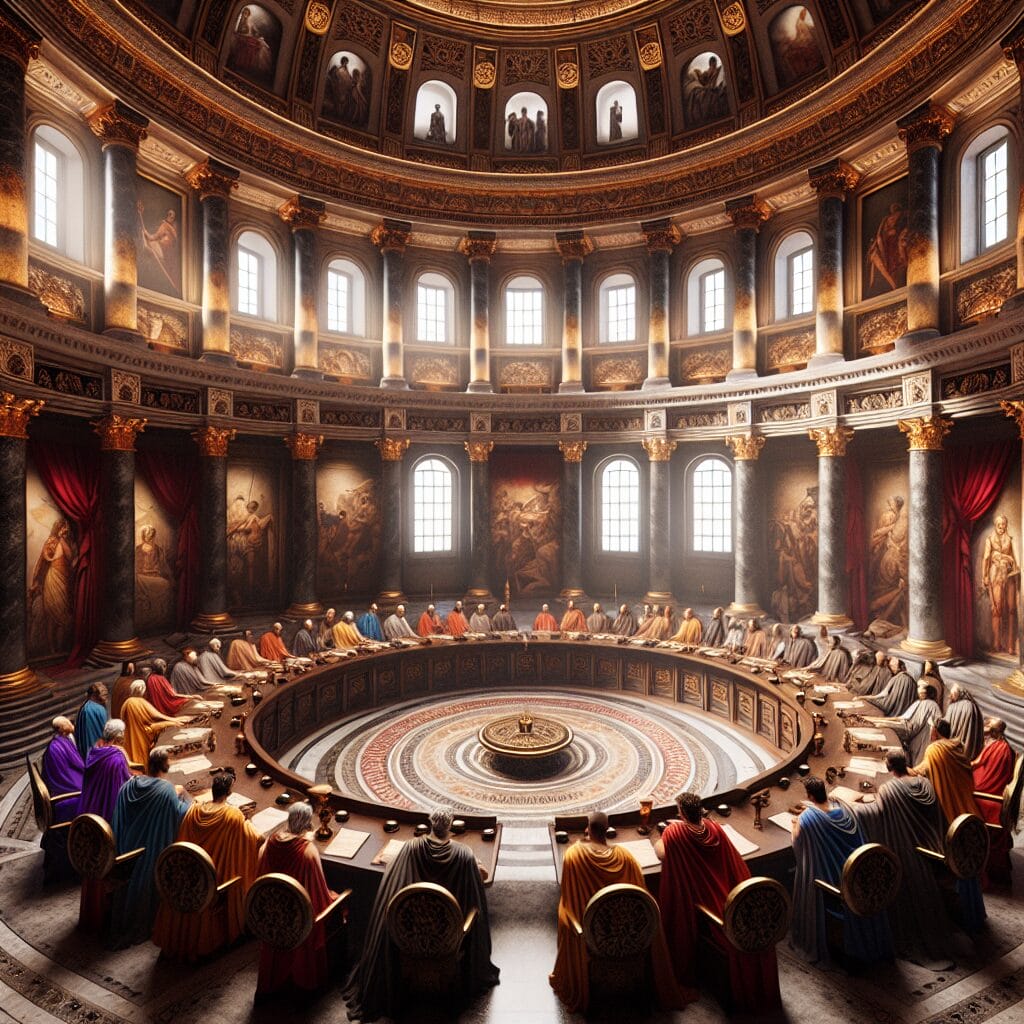
Political maneuvering was also evident through the actions of Octavius, a tribune aligned with the Senate, whose efforts to obstruct Tiberius’s reforms illustrated the internal conflicts and the Senate’s influence over political allies. This opposition reached its apex when Tiberius’s bid for re-election led to his assassination, an unprecedented move that underscored the Senate’s willingness to resort to violence.
“The Senate was more intent on maintaining its power than on the welfare of the Republic.”
However, this resistance was not without consequence. The assassination sparked mass riots, indicating the volatile public sentiment and the potential for unrest. The Senate’s strategies not only highlighted their desire to suppress reform but also contributed to a legacy of political instability in Rome.
Assassination of Tiberius Gracchus
In 133 BC, the assassination of Tiberius Gracchus marked a pivotal moment in Roman history, driven by his ambitious reform agenda and the resulting tensions with the Senate. Upon returning from military service, Tiberius was confronted with the plight of landless farm workers and rampant economic inequality. Motivated to address these issues, he sought the tribunate to enact land reforms aimed at redistributing public land to the poor.
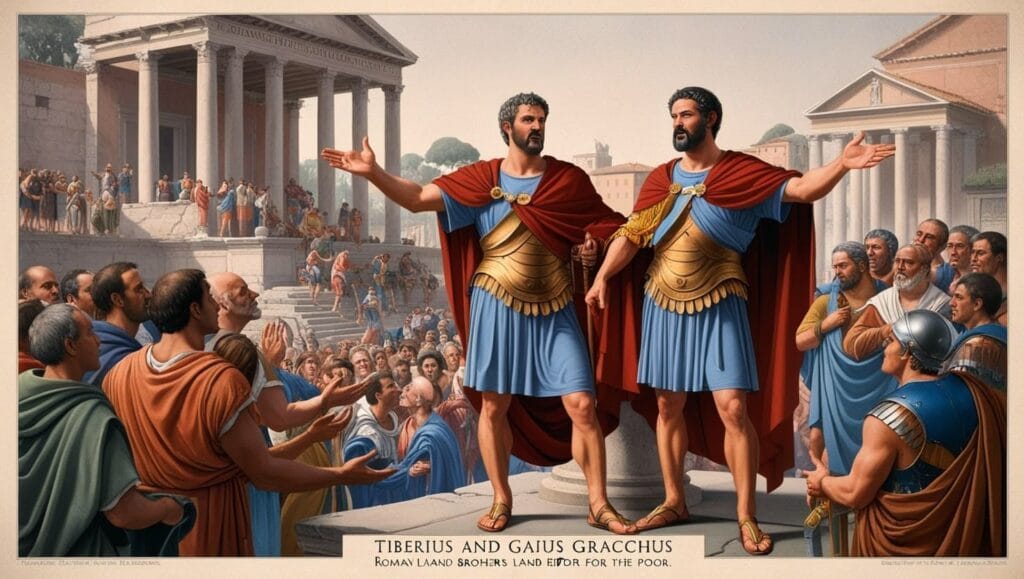
His proposals encountered fierce resistance, particularly from the Senate and his rival, Octavius, who repeatedly blocked his efforts. In a controversial move, Tiberius retaliated by shutting down governmental operations, escalating the political impasse. Despite opposition, his agrarian bill was eventually passed, intensifying hostility from powerful elites.
The situation culminated when a group of senators, led by Scipio Nasica, attacked Tiberius during an election rally, resulting in his death. This event set a precedent for the use of violence in politics, highlighting the deep divide between the populares and optimates.
In the aftermath, the political landscape was irrevocably altered, as violence became a tool of political expression, and Tiberius’s death served as a catalyst for future reformers such as Gaius Gracchus.
Gaius Gracchus: Continuing the Legacy
Building upon the foundation laid by his brother Tiberius, Gaius Gracchus emerged as a pivotal reformer in Roman politics. His tenure as tribune was marked by a series of ambitious reforms aimed at curbing the power of the Senate and addressing social inequalities.

- Agrarian Reforms: Reenacted Tiberius’s land redistribution laws, promoting the establishment of self-governing colonies.
- Judicial Reforms: Introduced impartial juries by excluding senators, transferring jurisdiction to Roman knights.
- Wheat Supply: Established subsidized wheat distribution to ensure food security and support the urban poor.
- Tax Farming: Transferred tax responsibilities in Asia to Roman knights, enhancing financial control.
- Political Alliances: Formed alliances with equestrians and the urban poor to strengthen his reform agenda.
| Reform Aspect | Tiberius Gracchus | Gaius Gracchus |
|---|---|---|
| Land Redistribution | Redistributed public land to the poor | Expanded policies to include self-governing colonies |
| Judicial System | – | Introduced equestrian juries to reduce corruption |
Gaius’s strategies, while innovative, faced considerable opposition, ultimately leading to his downfall. However, his legacy of reform continued to inspire future political movements in Rome.
Escalating Tensions with the Senate
As Gaius Gracchus advanced his reform agenda, hostility from political opponents intensified. The senatorial aristocracy, threatened by his transformative policies, increasingly sought to undermine his efforts. With significant reforms such as the judicial changes that excluded senators from juries, Gaius directly challenged the entrenched power of the Senate.
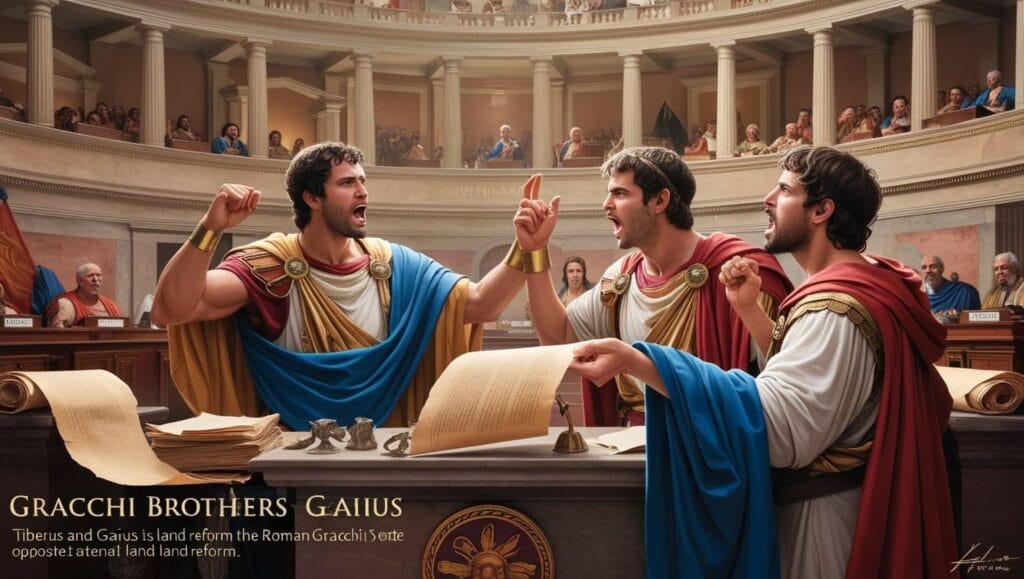
Gaius’s response to opposition was strategic and multifaceted. He employed populist tactics, gathering support from the lower classes through public assemblies and resonant rhetoric. This approach broadened his base, creating a formidable alliance against senatorial dominance. “Gaius’s voice echoed the struggles of the plebeians, uniting them in a common cause,” illustrates his effective use of public engagement.
Despite his efforts, conservative factions remained a formidable barrier, ultimately contributing to his political downfall. The increasing tensions underscored the deep divisions within Roman society and set the stage for future conflicts.
The Downfall of Gaius Gracchus
The political downfall of Gaius Gracchus was precipitated by a series of contentious events and miscalculations. Initially, Gaius’s strategic alliances, particularly with the Roman knights, bolstered his reform agenda. However, his proposal to grant citizenship to the Italian allies faced significant backlash, alienating many Romans who feared a dilution of their political power.
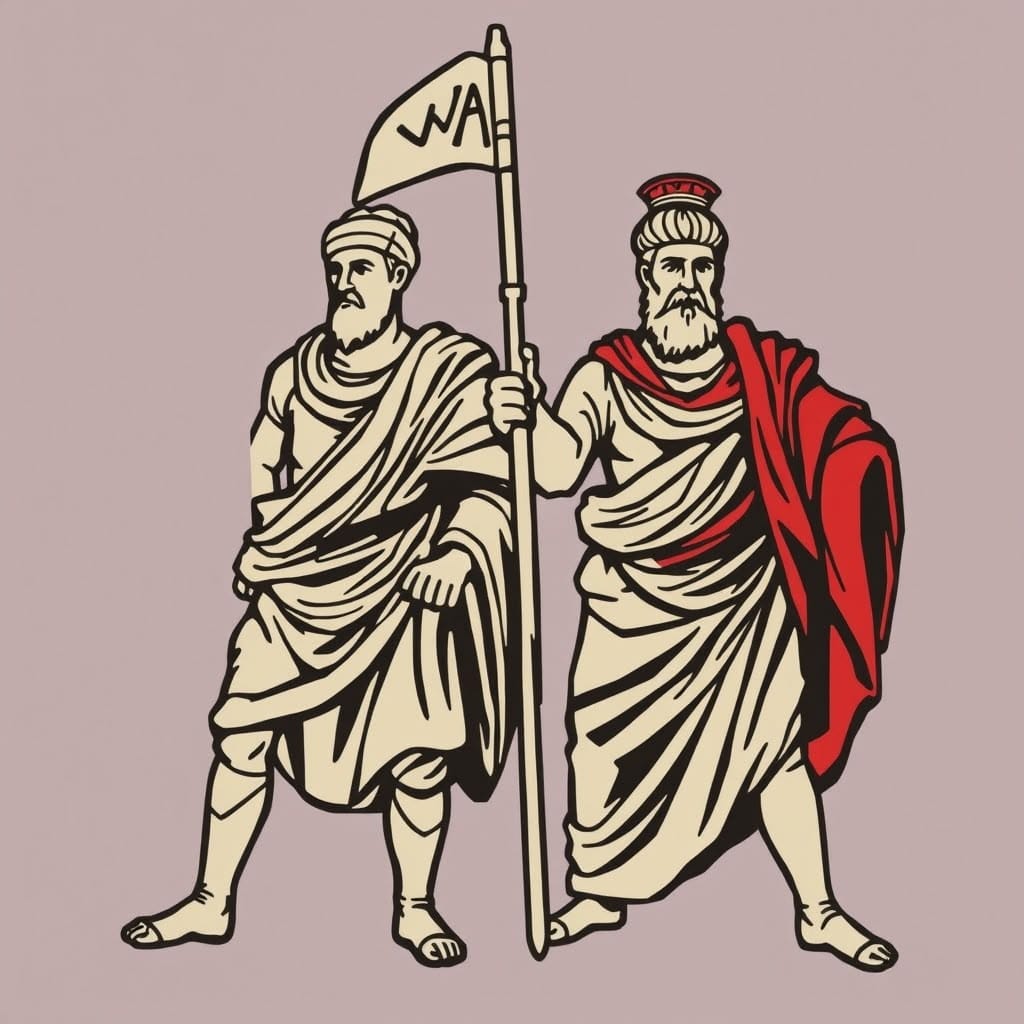
Despite his populist approach and extensive public support, Gaius underestimated the Senate’s resolve to maintain its dominance. His attempts to limit the Senate’s influence, such as removing senators from judicial roles, intensified political opposition. Over time, tensions escalated as conservative forces rallied against his initiatives.
Ultimately, Gaius’s inability to secure lasting allegiances and his controversial policies led to his political isolation. This culminated in a violent confrontation in 121 BCE, where Gaius and his supporters were overwhelmed by senatorial forces. His downfall marked a pivotal moment in Roman politics, highlighting the limits of reform in the face of entrenched aristocratic power.
Political Violence in Rome
The deaths of the Gracchi brothers marked a significant escalation in political violence within the Roman Republic. In 134 BCE, Tiberius Gracchus attempted to implement land reforms to aid displaced tenant farmers. His assassination by oligarchic nobles, following his unprecedented bid for re-election, incited mass riots, setting a precedent for future political conflicts.
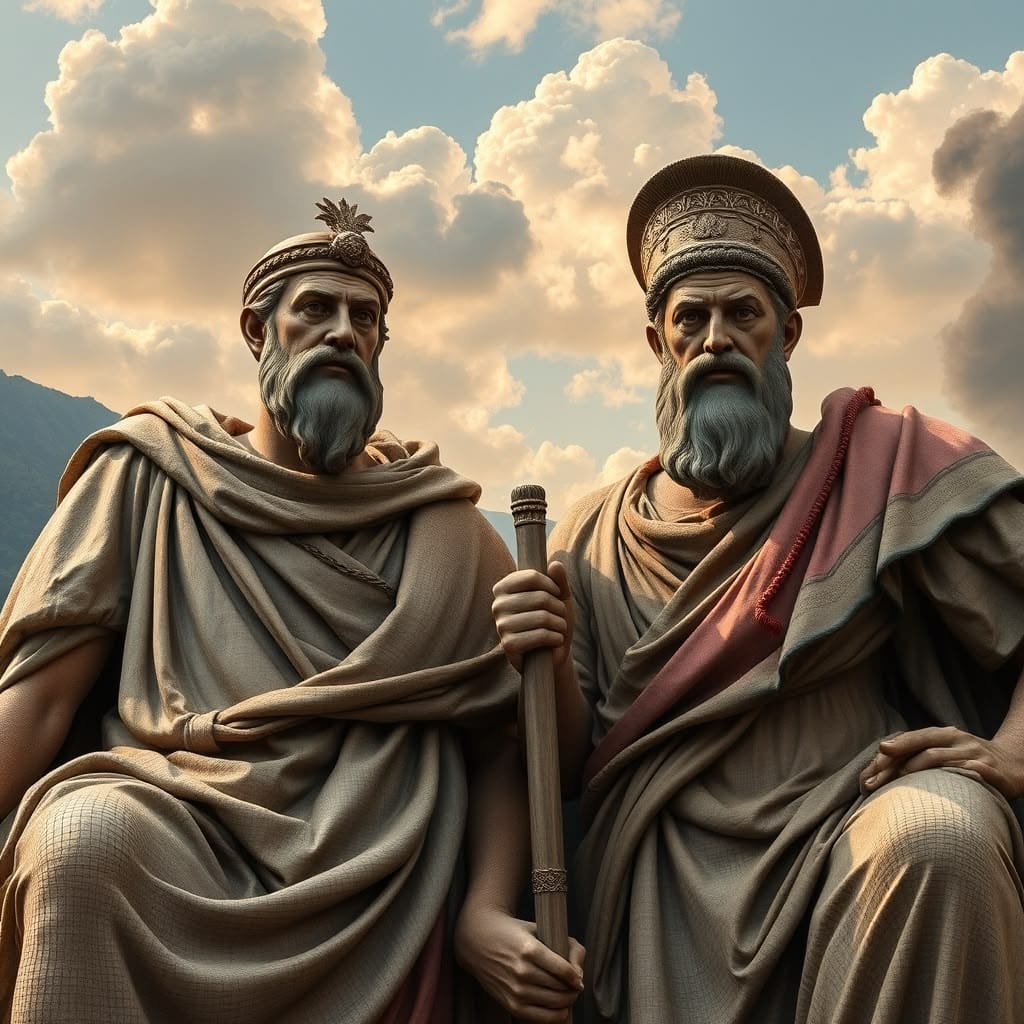
Gaius Gracchus, following his brother’s path, introduced even more radical reforms aimed at the impoverished plebeians. His initiatives ended in violence, with his death further intensifying the rift between the aristocracy and the lower classes. This period saw the rise of populist leaders and military generals who exploited the resulting unrest.
Long-term, the Gracchi’s deaths contributed to a pattern of escalating political violence. Their actions challenged the Senate’s authority, leading to a series of violent confrontations, including the conflicts between Marius and Sulla. This turmoil set the stage for the eventual decline of the Republic and the rise of the Roman Empire, as traditional political norms eroded, paving the way for future authoritarian rule.
Reformers or Revolutionaries?
The Gracchi brothers are often considered reformers due to their efforts to address the socio-economic inequalities prevalent in the Roman Republic. Tiberius and Gaius Gracchus aimed to redistribute land to displaced small farmers, challenging the concentration of property in the hands of the wealthy elite. Their initiatives sought to restore the economic stability of the plebeians, emphasizing their role as champions of the lower classes and advocates for social justice.

Conversely, some view the Gracchi brothers as revolutionaries for their radical approach in confronting the entrenched power of the Senate. By breaking away from traditional political norms and mobilizing the plebeian class, they threatened the status quo, leading to their violent deaths. This shift not only destabilized Roman politics but also set a precedent for future leaders to bypass established practices, fostering an environment ripe for political upheaval and violence.
Contemporary Historical Perspectives
Modern historians offer varied interpretations of the Gracchi brothers’ legacy. Some scholars, like Mary Beard, view their actions as a catalyst for necessary reform in the Roman Republic. She notes, “The Gracchi’s attempts to bridge economic divides were pivotal in highlighting systemic inequalities.” Others, such as Michael Crawford, argue that their methods set a dangerous precedent. Crawford asserts, “Their willingness to bypass traditional political channels contributed to a culture of instability and violence.”

Their efforts undeniably impacted subsequent reforms. By directly appealing to the plebeian class, the Gracchi challenged the entrenched power of the Senate, inspiring future populist leaders. This shift accelerated the erosion of political norms, leading to increased factionalism and ultimately the decline of the Republic. Their actions are seen as a turning point, influencing later developments such as the rise of populist movements and the transformation of Roman governance.
The Enduring Legacy of the Gracchi
The legacy of the Gracchi brothers reverberates through the corridors of history, influencing political movements long after their demise. Their bold attempts to address land inequality and the grievances of Rome’s disenfranchised laid the groundwork for populist movements to rise. By challenging the entrenched power of the Senate, Tiberius and Gaius Gracchus inspired future leaders to advocate for the common people, altering the political landscape of the Republic.

Modern governance can draw valuable lessons from the Gracchi’s endeavors. Their story underscores the dangers of political rigidity and the necessity for systems to adapt to societal needs. The violent resistance they faced serves as a cautionary tale about the perils of ignoring economic disparity and the voices of the marginalized. As history has shown, such resistance can lead to instability and violence. Thus, the Gracchi brothers’ legacy offers a reminder of the importance of reform in maintaining social harmony and political stability.
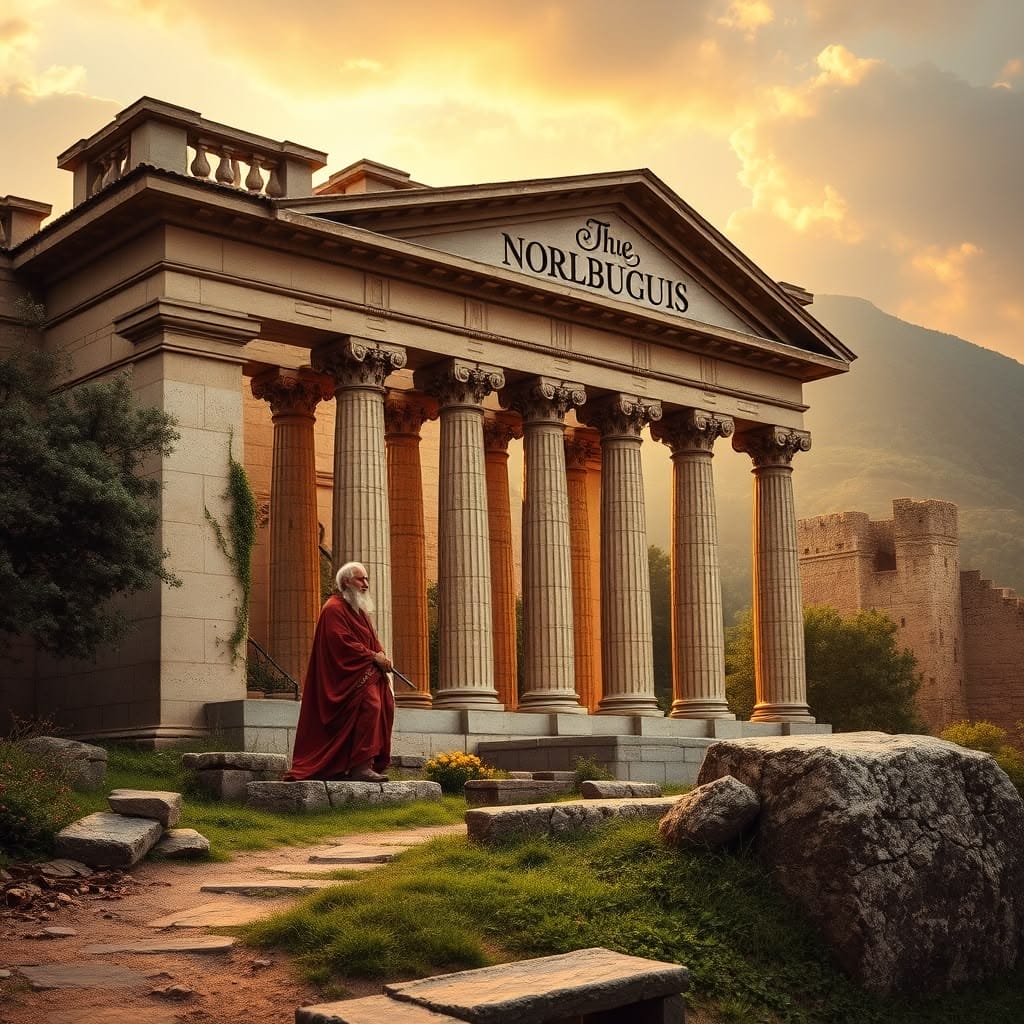
Conclusion
The Gracchi brothers, Tiberius and Gaius, played a crucial role in the history of the Roman Republic by confronting land inequality and challenging the established norms. Their reforms sought to empower the plebeian class and address economic disparities, which sparked considerable resistance from the Senate. The violent deaths of both brothers not only marked a turning point in Roman politics but also set a precedent for increasingly turbulent political conflict.
This article has explored the dual nature of the Gracchi as both reformers and revolutionaries, emphasizing their lasting impact on political traditions. By maintaining a balanced perspective, we acknowledge their contributions to reform while recognizing the ensuing political violence that reshaped the Republic. Their legacy serves as a powerful reminder of the complexities involved in political change.
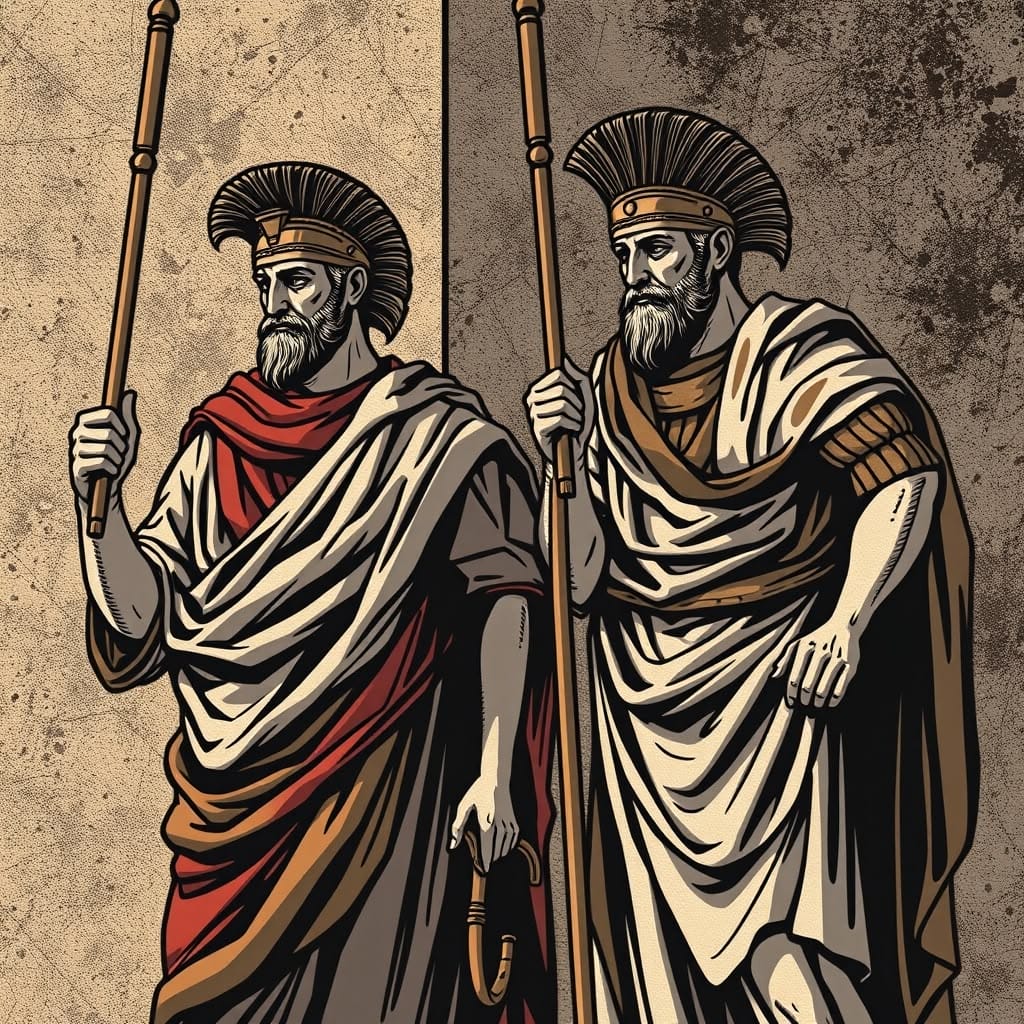
FAQ Section
- Who were the Gracchi brothers? The Gracchi brothers, Tiberius and Gaius, were influential political figures in the late Roman Republic known for their efforts to implement land reforms to reduce economic inequality.
- What were the main goals of their reforms? Their primary goal was to redistribute land to Rome’s displaced small tenant farmers, addressing the widening gap between the wealthy and the poorer plebeians.
- How did the Senate respond to their proposals? The Senate strongly opposed the reforms, leading to political stalemates and ultimately the violent deaths of both brothers. This opposition stemmed from the threat the reforms posed to the established patrician power.
- What impact did their deaths have on Roman politics? The deaths of the Gracchi brothers marked a turning point, escalating political violence and contributing to the rise of populist leaders who challenged the Senate’s authority, eventually leading to civil wars. Learn more about the political violence that ensued.
- Are the Gracchi brothers considered reformers or revolutionaries? Historians debate their classification, as their efforts to reform land distribution were revolutionary in breaking with traditional norms, yet aimed at reforming rather than overthrowing the system. Explore different perspectives on their legacy.

